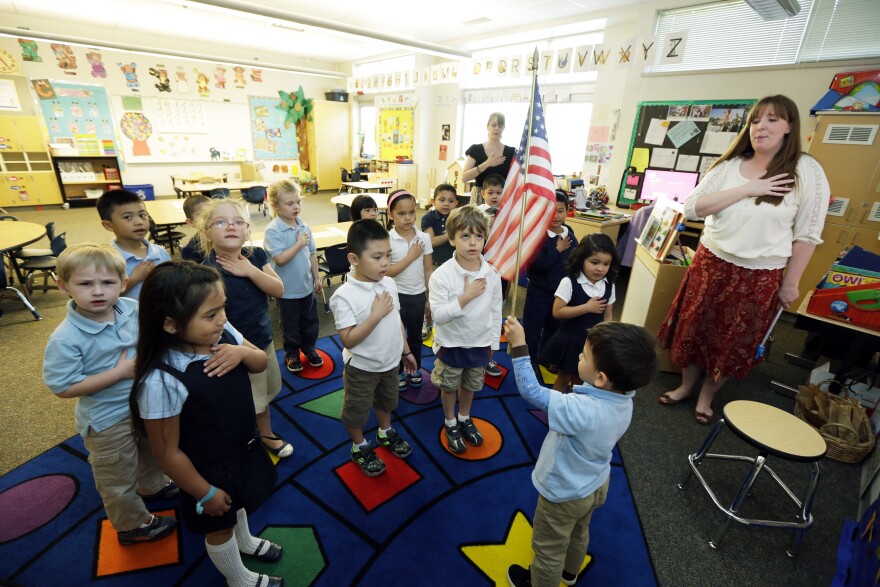Here's a bitter pill preschool teachers must often swallow: they could probably make more money by teaching kids who are just one year older.
The average Washington state preschool instructor makes $28,400 annually — half of what he or she could earn teaching kindergarten. In public school settings, a kindergarten teacher takes home $53,800 every year to a pre-K teacher's $44,700. It makes it harder to lure the best teachers into preschool jobs, or keep them beyond their first few often-rocky years in the classroom.
"I think early childhood is often more attractive than the higher grades for many [teachers], and the pay is so low it still keeps them away," said Steve Barnett, director of the National Institute for Early Education Research.
Seattle Mayor Ed Murray's recently-released preschool plan addresses this disparity directly. If voters approve a four-year, $58 million ballot initiative to expand the city's pre-K services, the mayor's plan calls for lead teachers in the new program to be "paid on par with public school teachers."
But taking a cue from a similar initiative in Boston, Seattle's plan also calls for those lead teachers to have a four-year degree — still a relative oddity in the early childhood field.
While many teachers in public school pre-K programs hold bachelor's degrees, a recent study of Head Start found fewer than half of teachers in the federally-funded preschool programs hold bachelor's degrees. As with many pre-K jobs, Washington state's public program only requires teachers to hold associate degree.
Barnett says requiring four-year degrees would not leave Seattle short of qualified candidates to lead pre-K classrooms.
"There's a pool of people who are qualified to teach and don't because the pay is too poor. If the pay was there, they would come back," Barnett said. "But also, the teachers who are teaching the kids now would love the opportunity to go to school, get their degree and become better qualified to do their jobs. They won't invest in that unless there's a payoff to it."
The payoff of higher degree requirements may be higher quality in the program. New America Foundation analyst Clare McCann broke down a 2013 study that found Boston's universal preschool initiative had a "moderate-to-large" positive impact on kids.
"The program’s effectiveness could be driven in part by the fact that Boston Public Schools pays its pre-K teachers as much as it pays K-12 teachers," wrote McCann. "That might help prevent the common exodus of low-paid pre-K teachers into the elementary and secondary grades."
Murray's plan calls for having two instructors to serve classrooms of 20 students. The lead instructor must have a bachelor's degree. Assistants would be required to hold associate degrees or to have completed two years of college.
The plan says bilingual teachers will be "fairly compensated for their expertise," though it doesn't explicitly state they'll receive bonuses for their skills.







